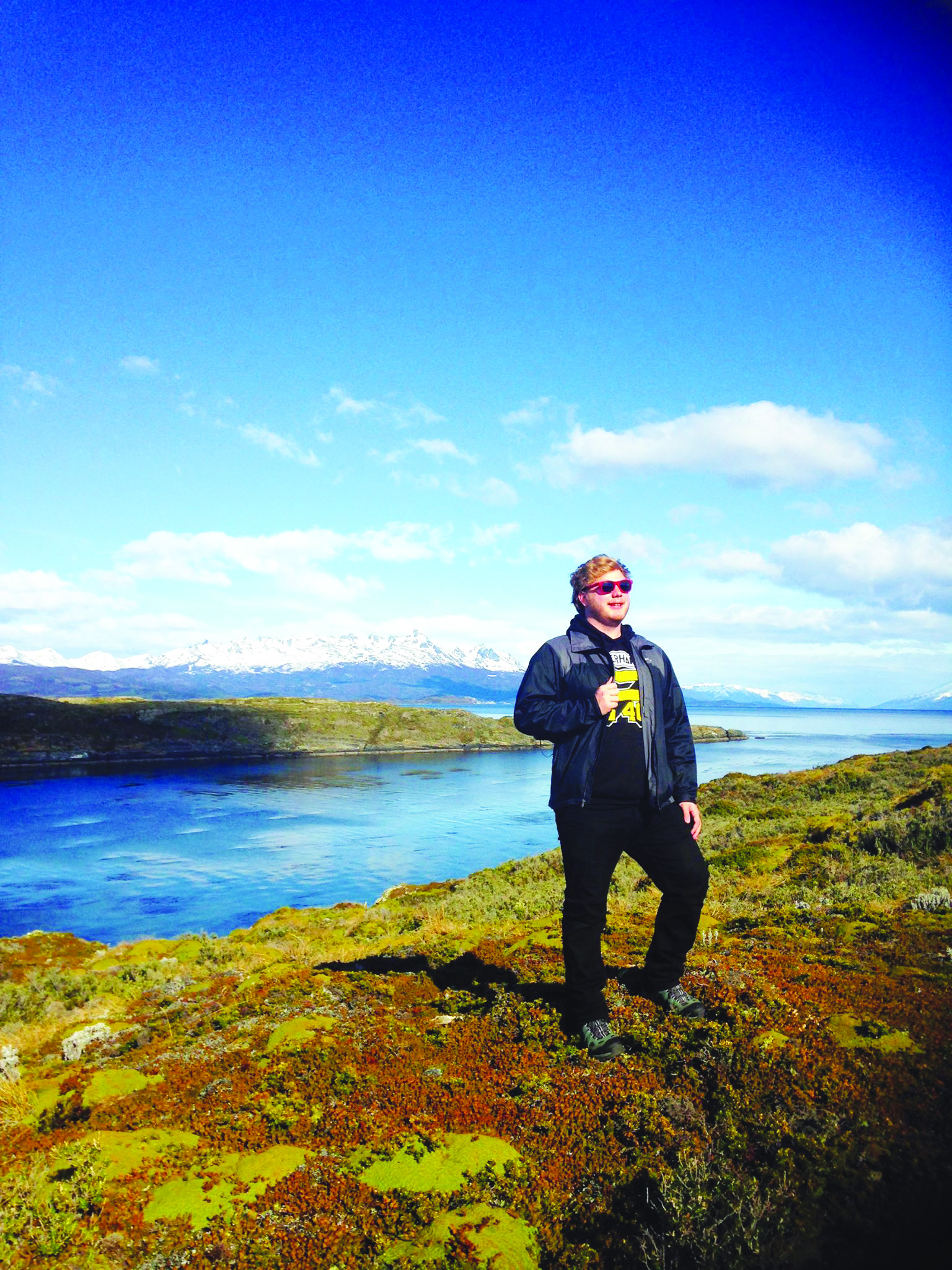The Institute for the International Education of Students (IES) granted Reed Foster (junior) the 2016 Global Citizen of the Year Finalist Award Feb. 22. This award recognizes an IES Abroad student who has made an impact through academic, philanthropic or personal efforts during their experience abroad, according to their website. IES nicknamed Foster “the anthropologist” for his interest in understanding the development of cultures and their complex social dimensions during his time in Buenos Aires, Argentina.
The Global Citizen of the Year Award grants the IES Abroad student the opportunity to showcase their story to a global audience on IES’s website and to be recognized for their contributions by the entire IES network, which is composed of over 145,000 alumni and colleges and universities around the world. Each year, there are more than 6,400 IES Abroad students who are eligible to receive the award. However, only one individual receives the grand prize of $1,000 and three finalists receive $250 each.
Macarena Blando Demarco (junior), close friend and classmate, is supportive of Foster’s efforts abroad. She was not surprised by his achievement and noted that he has always been active and involved in campus organizations.
“I thought it was great of Reed to make the most of his experience by not only exploring what Argentina has to offer, but taking the time to give back to the community as well,” Demarco said.
Foster collaborated with local development initiatives in Argentina during his semester abroad. He wanted to expand his education beyond regular classes through cultural engagement.
“To me, a global citizen is anyone who wants to positively expand their learning experiences through interaction with others,” Foster said. “Global citizens are unified by an interest in understanding and wanting to engage with culture.”
While abroad, Foster worked with Fundación Pilares, an organization dedicated to working with underprivileged families to promote integral development in the villas of Buenos Aires. Foster and Teresa Pangallozzi (junior), another Occidental student in the program, collaborated to create an English tutoring program for the children living in the villas. According to Magdalena García Pena, program organizer at Fundación Pilares, the children in the program are already at a disadvantage because of their poor living conditions. The program teaches young students to speak, read and write in English, increasing their opportunities for the future. Foster still communicates with the program in efforts to improve the curriculum and offer any additional suggestions.
Conversely, Foster’s experience abroad was also an opportunity to understand his own identity within a larger cultural context.
“The kids I worked with were full of energy and had an incredible curiosity about who I was,” Foster said.
Foster spent much of his time working with the children answering questions about his life back home during his time abroad. The pupils were eager to hear about the volunteers’ lives and shared their own experiences in return.
“A lot of my experience with cross-cultural dialogue was positive, but at times it would take on negative connotations as well, especially while being abroad during the election,” Foster said. “Learning to navigate your identity and privilege through critical dialogue such as that is a huge component of study abroad and being a representative of your home country.”
Robin Craggs, executive director of the International Programs Office (IPO) at Occidental, explained how global citizenship is the central focus of IPO’s mission. In the application process for study abroad, IPO urges its applicants to conduct extensive research on their countries of interest, which promotes the idea that they will begin their abroad experience in a more culturally sensitive and conscious manner.
“I really appreciate how Reed made such a strong personal effort to engage,” Craggs said. “He volunteered, he developed a curriculum for these kids — he really didn’t just cruise through his experience and hang out with the other Americans; he made a big effort to get involved. Awards aside, he derived the personal benefit of feeling like he really achieved something and pushed himself.”
Have a tip? Email us at weekly@oxy.edu or tweet us @OxyWeekly.
![]()




































